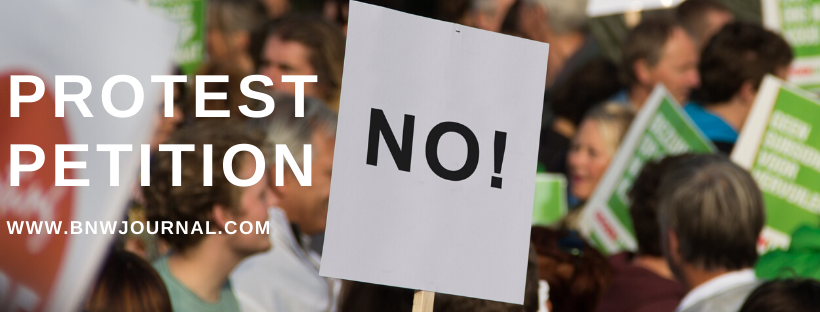![]()
In our legal ecosystem, the doors of justice are opened through the awareness of the citizens about their rights. Like any other property rights, right to get justice is an intangible right of a person. For the completion of the dream of our constitution makers, who wished to formulate the implied duty of law, as to help a person achieve their full potential.

When a wrong happens to an individual, then the only ray of hope they have is that the police will hear the victim and help facilitate in the mental and monetary recovery of the same by taking the wrong doer to the court of law.
When is Protest Petition Filed
What if the police officer, who is in-charge of taking the cognizance of the complaint on behalf of the court, to take forward the complaint to a magistrate was bribed? Or his personal opinion about the aggrieved person and the wrong doer, clouds the judgement of the police officer? What remedy a person has in such case, where the police officer’s report is not satisfactory for them? This has not been codified yet in criminal law of India.
A police report filed by police which is unsatisfactory according to the person who made the report, may move against such police report in court of law. And the negative police report forms a considerable basis for the complaint petition. Flaws in the police investigation may be utilized as the justification for the admission of the complaint petition. The complaint petition may run in three ways described as following:
- the rejection of the petition and acceptance of the police report;
- the police report remains unaccepted nor completely rejected while the complaint petition runs simultaneously to the case involving the police report; and
- the police report is rejected and the complaint is taken as the basis for an investigation directed by the court to be carried out by the police, or any other individual or institution who shall have all the powers conferred on the police except the power to arrest without a warrant.
The sections which have been referred to draw the above conclusions are section 156(3) Cr.P.C., section 190(1)(b) Cr.P.C., section 200 Cr.P.C. and section 202 Cr.P.C.
These provisions of the Criminal Procedure Code give the judiciary an opportunity to the check the executive branch of the government. And as a result , hold the executive accountable for the errors that it may make as it handles the ailments or issues of the huge population of India. The individual responsibility to represent the fairness and understanding of the number of the concerns of a billion and more people is upon the Magistrates.
The article 14 of our Indian Constitution ensures every citizen that equality is there before law. One of the key essentials of ‘Rule of Law’ being this “Equality before law”, as explained by Professor A.V. Dicey while referring to rule of law. Hence, Indian Constitution silently invites rule of law into its constitutional machinery. A member of executive wing of our constitutional system may fail to follow his judgment to needed depth and wrongly takes the cognizance of an offence.The result of which can be considered failure of the machinery set on the principles of our nation’s constitution makers.
The well-educated political leaders of their time, had the most difficult task in-hand, which was to make a country running. With sovereign being the ‘People of India’ the sole purpose of Indian Government is to maintain law and order. Therefore, to fulfill the duties given by the founding fathers of India,the rule of law guides the Indian Government alongside prima facie, to help an individual attain themselves the truest potential, as mentioned under the Chapter III and IV of the Indian Constitution.
Constitutional Provisions
Constitution, in its Chapter III read along with Chapter IV, subsequently, empowers every citizen to seek for remedies for breach of their right to get constitutional remedies, for omission of an act which would have lead to proving the FIR was actually justifiable and cognizable in nature but was marked close for some valid reason in the discretion of the police officer in-charge. A protest petition is the silent name for this particular kind of petition against the negative complaint of the police.
Conclusion
Since petition is a formal request for a cause by individual or individuals, it empowers the magistrate to consider a particular case’s negative police complaint and take cognizance of the complaint, just like a police officer is empowered to enter a premises without a warrant, a magistrate is also allowed in special circumstances in the interest of the society to start the court proceedings for the same.



0 Comments